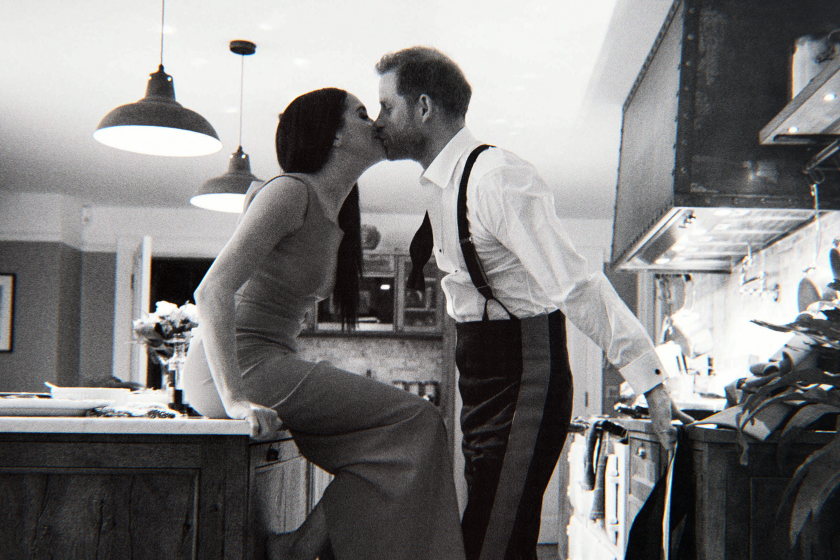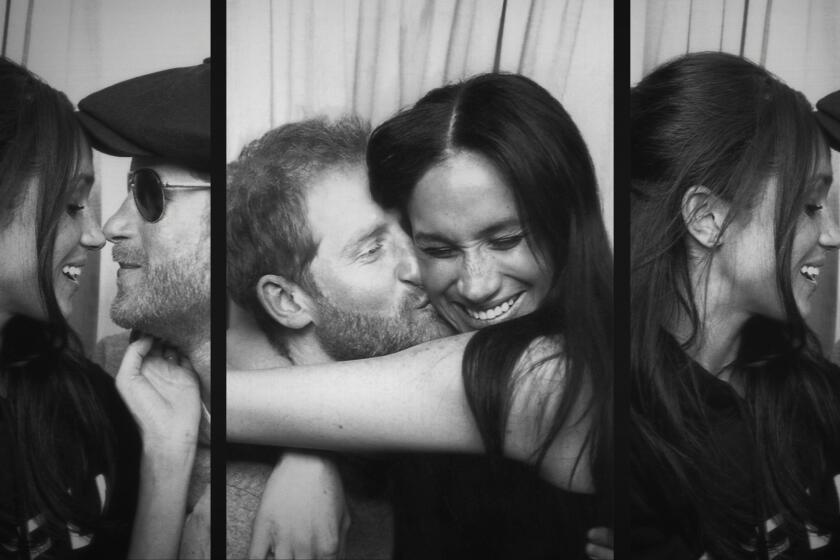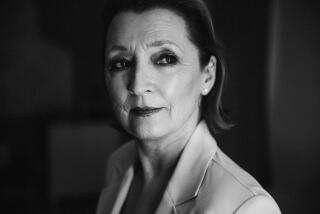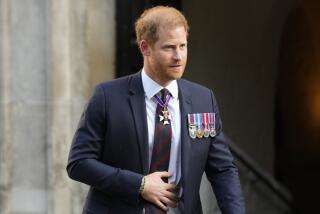‘Harry & Meghan’ was a chance to share the journey of the Duke and Duchess of Sussex
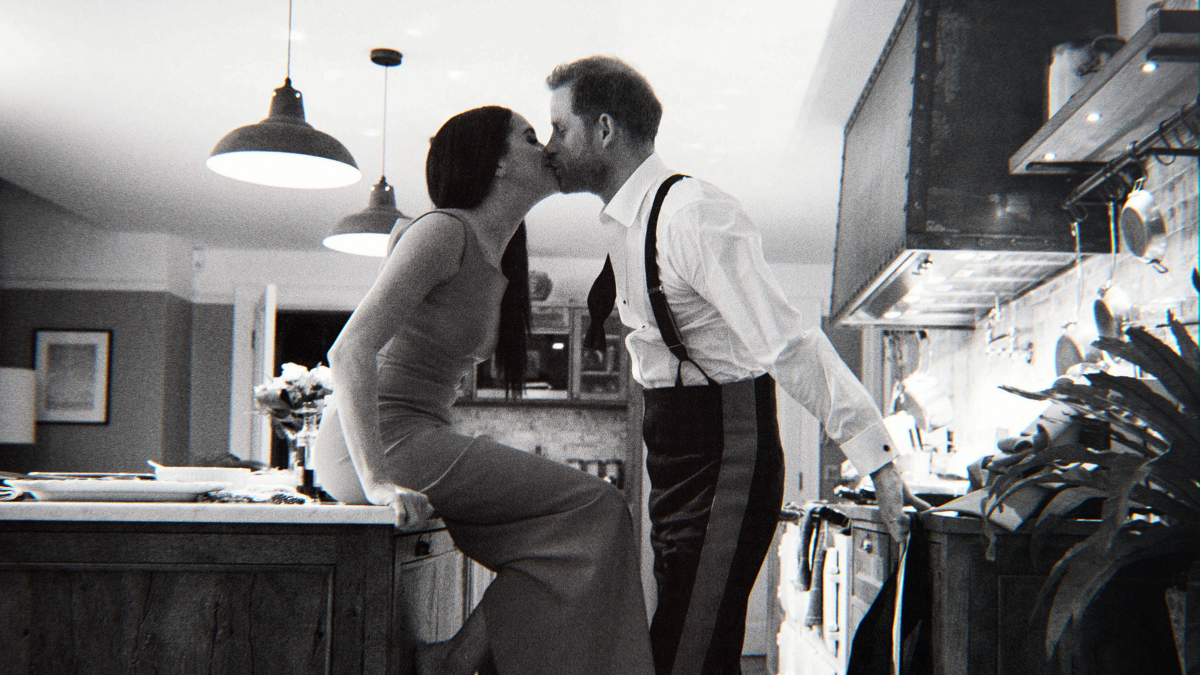
- Share via
Shooting a documentary series starring one of the world’s most high-profile couples is no easy task. But when that couple is the headline-generating Duke and Duchess of Sussex, perhaps better known as Prince Harry and Meghan Markle, extra levels of fidelity, discretion and safety must be employed.
Challenges aside, making the Netflix series “Harry & Meghan” proved unusually gratifying for Liz Garbus and Chanel Pysnik, two of its executive producers and creative partners — and not only because the show nabbed the streamer’s record for the most-watched documentary debut.
Series director Garbus, a two-time Oscar nominee and seven-time Emmy nominee (with producing wins for the documentaries “Ghosts of Abu Ghraib” and “What Happened, Miss Simone?”), was brought into the project in 2021 by Pysnik, who had recently started as head of unscripted for the duke and duchess’ Archewell Productions.
The first half of Liz Garbus’ docuseries about Prince Harry and Meghan, the Duke and Duchess of Sussex, premiered Thursday. Here’s what to know.
Garbus had previously worked with Markle on a children’s show the duchess was developing and found that they “worked really well together.” This paved the way for Garbus and her film and television company, Story Syndicate, to be hired onto “Harry & Meghan.” (A third company, Diamond Docs, also produced.)
Garbus and Pysnik met with the Envelope in a joint Zoom to chat about getting to know the duke and duchess, documenting the pair’s fraught but loving journey and matters of trust.
Liz, what sealed the deal for you to jump onto this project?
Garbus: If I’m approaching a documentary, I want to know if the folks I’m working with want to share — that they’re game. I had [already] gotten to know Meghan but wanted to have a sense of Harry’s point of view.
I got on a Zoom with both of them and … just hearing the stories he had to tell, his desire for openness, his desire to get the story of the last several years of their lives out without the mediation of people with agendas and the British tabloids’ agenda of clickbait, I felt like, “Wow, here’s a story that obviously the whole world is fascinated by.” And that it can really operate on deep historical and cultural levels, too.
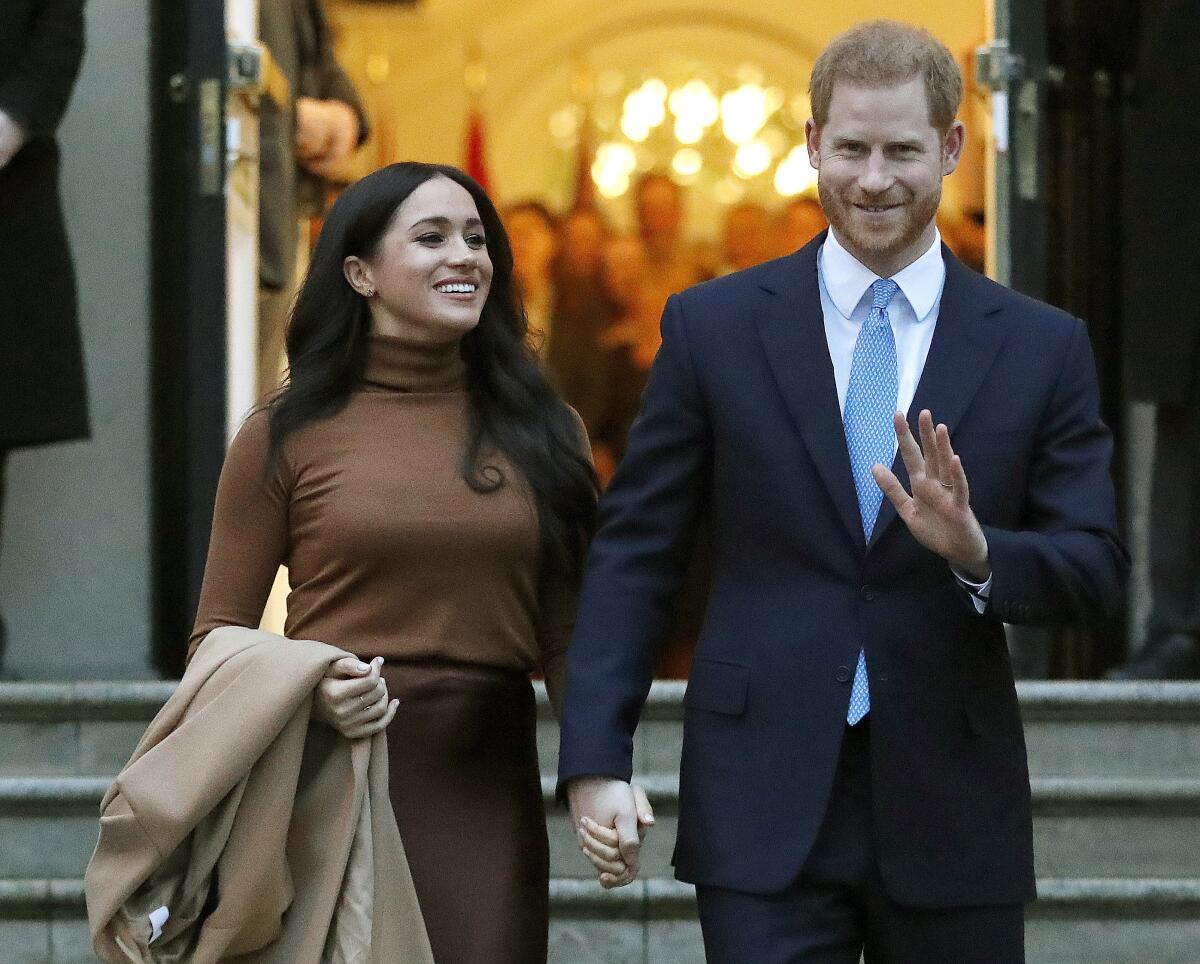
What was your approach to shooting the series, given the inherent limitations and sensitivities?
Garbus: When you’re making a film about people, they always have agency because they can share what they want to share and keep what they want to keep. I don’t know what [Harry and Meghan] didn’t share, but that’s their right. Like any project, you’re building trust with your subjects.
I wasn’t interested in a reality show. I wasn’t interested in being there in the morning when they woke up to have coffee. I was interested in talking to them and having them be as open and transparent as possible and making those connections to the larger [thematic] framework.
Pysnik: One thing that was really unique to this project was how careful we had to be with the personal archive. Some of the things [Harry and Meghan] were sharing with us were very much never before seen .… We had to protect the archive in order to continue to build trust and honor the project. So there were a lot of [security] protocols put in place that, I think, went above and beyond what another project would probably do.
Was there any attempt to get input from the British press? To hear their side of things?
Garbus: We were trying to keep this project very low profile and under wraps until Netflix chose to announce it to the world, which was really close to when we aired. So the idea of going to tabloids in the U.K. was kind of a nonstarter.
The couple’s Netflix docuseries concludes with a detailed look at their departure from royal life — and what led them to it. Here’s what to know.
What surprised you about Harry and Meghan as people?
Pysnik: For me, it was very much their relationship together … and how they look at each other and interact. As we were crafting the arc of the series, the love story element as the through line just felt authentic and right, considering how beautiful it is to watch them together when they’re just at home or on Zoom or sitting on a couch.
Garbus: I had kind of already built a basic relationship with Meghan over the prior year. I wasn’t a royal watcher … I didn’t have those preconceived notions. [Though] I guess I had, like, the vision of a stiff upper lip kind of family member. As everyone knows from our doc, Harry actually is very chatty, very communicative, emotionally intelligent, doing a lot of work on himself in terms of dealing with his past and dealing with being a man married to a woman of color in America. That definitely surprised me.
Has the series helped Harry and Meghan’s standing with the British naysayers or media?
Garbus: One of the things that I explored in the show was that, in many ways, this was Harry’s journey. That Harry had this very fundamental primal trauma as a child and felt very clearly that the royal family did not protect his mother. And, as a child who loses a mother, there are things that aren’t forgivable.
And I think that Meghan was on this journey with Harry, as opposed to her pulling Harry out of something that he would have stayed in were it not for her. Meghan really became the face of the blame for “destroying” something that the British public felt was so important to them. And then [add] throwing every misogynistic and racist trope into that — as has historically been the way women have been positioned in these kinds of narratives.
Pysnik: I also think, just beyond the naysayers whose minds were changed, the way that Liz and the team so beautifully wove together this story in general, with suspense and a ticking clock and sociocultural context, really engaged an audience that normally wouldn’t even care to have an opinion on this type of subject.
More to Read
From the Oscars to the Emmys.
Get the Envelope newsletter for exclusive awards season coverage, behind-the-scenes stories from the Envelope podcast and columnist Glenn Whipp’s must-read analysis.
You may occasionally receive promotional content from the Los Angeles Times.
